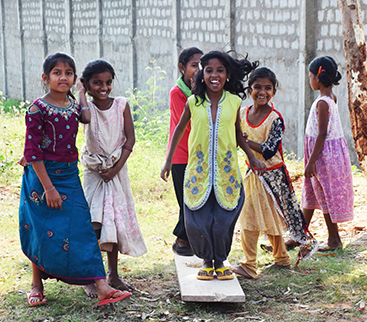
5 Min Read
A Christian Encounter in a Hindu Indian Village with Set Free Alliance
Read More
4 Min Read
May 21, 2020
Do you remember your decision to follow Christ? For many of us, we can pinpoint a time in our lives or even a day that we made the choice to become a Christian. It’s often marked by a realization that there is hope and grace through Christ – not only that, but there is the promise of eternal life. But, for Indian Christians, the decision weighs heavier than ever. For those that are of a higher caste, they must be prepared to trade their upper-caste standing and become a Dalit or Untouchable, shunned from society. We want to tell you exactly what this means in Indian culture. The stakes are high for Indian Christians, and their faith is to be commended.
The caste system is defined as “one of the hereditary social classes of Hinduism that restricts the occupation of their members and their association with the members of other castes sanctioned by custom, law or religion.” More so, the caste system is so deeply embedded in Indian culture, it often surpasses the boundaries of religious affiliation. So, when someone of a higher class decides to become a Christian and profess their faith publicly, even though they do not practice Hinduism, the religious customs will still affect them. The upper castes around them will view them as complete outcasts – vile, and unclean.
The Dalits are so low in the caste-system that they fall below the four main recognized groups: Brahmins, Kshatriyas, Vaishyas, and Shudras. The Dalits are completely shunned from society. They are viewed as having less value than a cow. They live their lives in constant fear of being beaten, raped, or lynched for walking down the wrong street, drinking from the wrong fountain, etc. This caste of people is born into this position with no hope of escape.
If someone of a higher caste proclaims their faith in Christianity it is seen as a disgrace to the nation’s beliefs and practices. Because this is seen as a betrayal, that new Christian is shunned, and seen as an impure Dalit, leading to extreme persecution.
Additionally, many Dalits that were born into that caste, convert to Christianity to find refuge from their position within society. Christianity tells a different message to this group that has been told since birth that they are unclean and subhuman. Because Christianity is especially attractive to the Dalits, Hindus view this conversion as a bribery from Christian leaders. It is widely the belief that any religion outside of Hinduism is alien and counteractive to Hindu practices such as the caste-system.
Becoming a Christian Dalit means double the persecution and oppression. First, as an Untouchable they are considered impure from birth, performing jobs that are traditionally considered unclean, menial, or degrading for very little pay. This treatment as a class, combined with the tradition to practice a religion other than what is historically culturally acceptable, leads to even more persecution.
The caste you are in is inherited. Dalit Christians will pass their caste down to their children and their children’s children. Because the caste system is based on the principle of karma, it is believed that a person is deserving of the caste they belong to because of actions in a previous life. So, whether you belong to a higher caste, or the lowest it is seen as an ethical consequence.
The decision to proclaim your faith in God takes on a whole different meaning for our Indian brothers and sisters. It is hard to comprehend as American-Christians, but their courage deserves to be celebrated – because in Christ true freedom can be found. Freedom that the caste system cannot take away.

See how far your dollars go in making an impact in the lives of others.
Follow us on social: